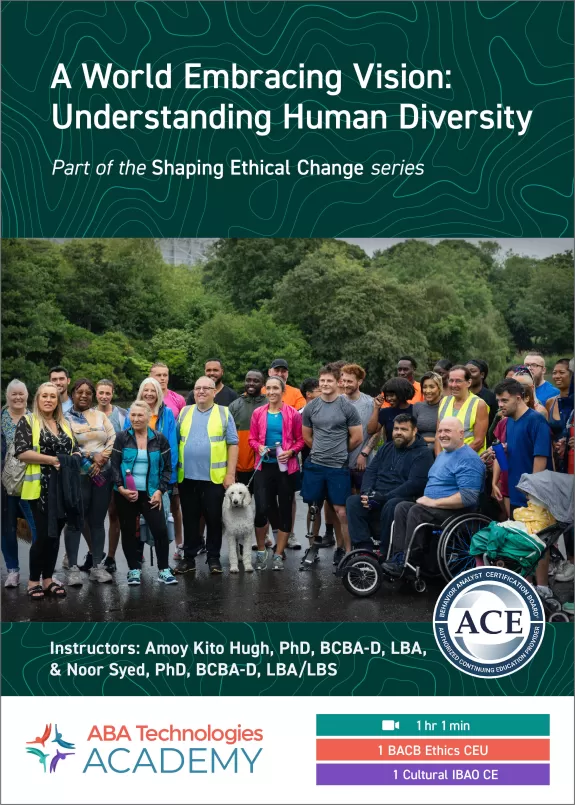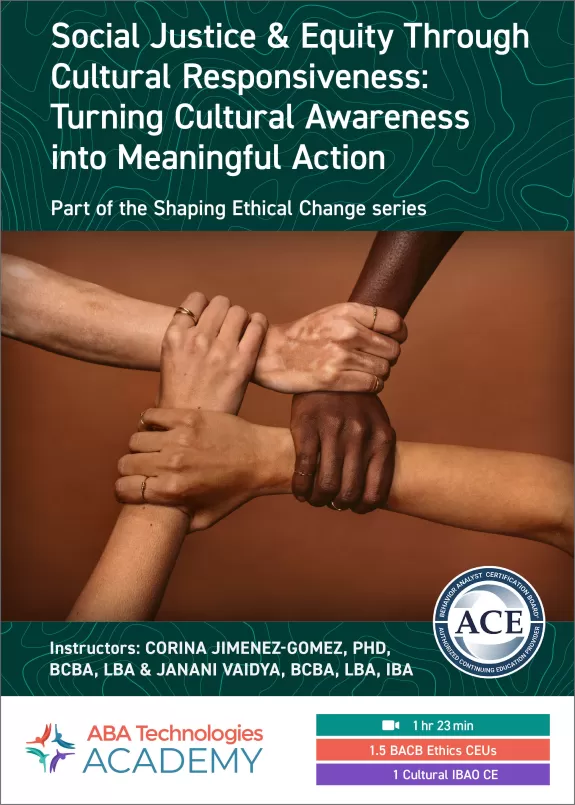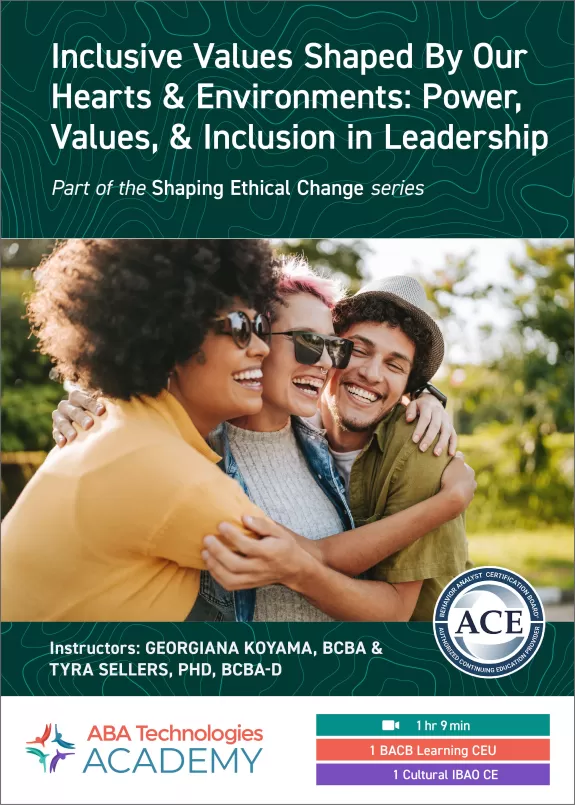Shaping Ethical Change 2: A World Embracing Vision
Contact us for group and customized options
Abstract
This section will cover the impact of intersectionality on our individual and cultural learning histories and, ultimately, how we practice. Dr. Amoy Kito Hugh and Dr. Noor Syed will guide us through how these experiences shape our attitudes and beliefs and provide insight into how these beliefs shape our perspectives of others and influence our own implicit bias. Cultural contingencies shape our environments, our worldview, and how we practice in our professional roles. Awareness of how our own beliefs are formed allows us to target meaningful change when opportunities for improvement arise. Our intersectional identities are heavily influenced by cultural contingencies and affect how we interact with others as well as how others interact with us. When our attitudes and beliefs result in differential treatment of others based on the similarity, or difference, in shared cultural values, we engage in implicit bias. Implicit bias can impact the quality of our interactions with others and may worsen social relationships due to perceived differences. Our social locations, connections, and disconnections are influenced by those we know, our verbal behavior, and our level of collaboration and cooperation with peers. By continuously evaluating our own worldview, prioritizing social validity, and emphasizing collaboration, we can help create spaces that foster inclusive and open communication where individuals, especially those with marginalized identities can be their best selves.
Learning Checklist
- Describe the impact of cultural contingencies on our thoughts, beliefs, behavior, and worldview
- Explore some of the different intersectional identities and their impact on common learning histories
- Describe the dynamic interplay of social locations, connections, and disconnections shaping our experiences and the field of behavior analysis
- Apply strategies to mitigate bias and embrace a diverse and inclusive worldview




